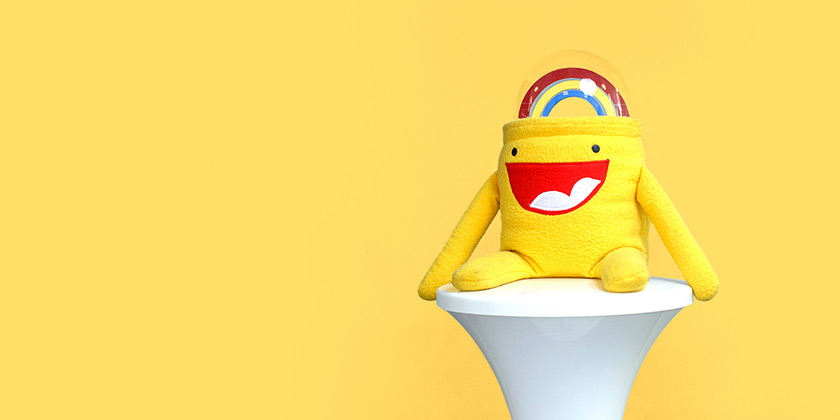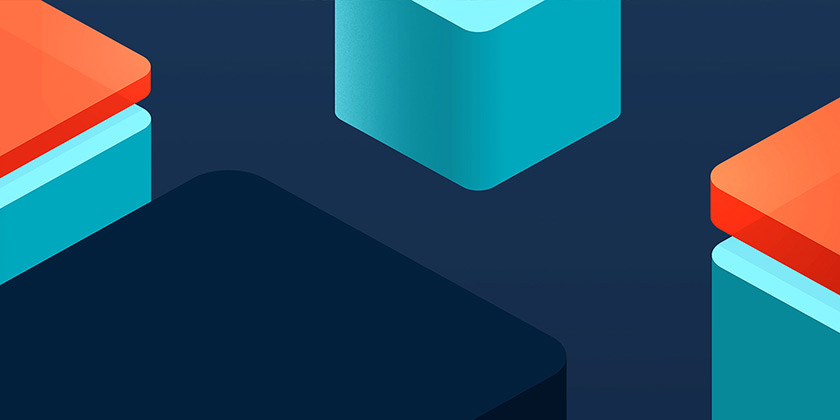Steven Wake, affectionately known by the team (and clients) as "Wakey", joined Kyan as a Software Engineer (or perhaps "Programmer" back in those days) soon after our foundation. This makes him our longest-standing employee, at an impressive TWENTY YEARS.
To celebrate this momentous occasion, we did two things. We sat down with Wakey (and his slippers) to reflect on his time at Kyan. We also put Wakey (and his pyjamas) in front of the camera. Here's to you, Wakey. Thank you for twenty years of PJs and programming.
Mr Wake, thank you so much for being here today. A happy twenty years to you and to us!
Thank you for having me; it's a pleasure to be in the office.
Let’s get straight into the questions. As a software engineer, what are the biggest changes that you've seen during your time at Kyan?
I would say that every single piece of technology we use now is vastly different from what we used to use back in the day. Everything has changed. Looking back, that was things like uploading via FTP. The complete lack of version control. We barely use metal-based servers anymore – everything is cloud-based. Everything revolves around GitHub.
Technology aside, processes and the way we work make it clear to me how much we have matured as a team. Everything today is very procedure-driven, which I think is a great thing. The quality of our code has really improved, too. That’s not to say it was “poor quality,” but code health, in general, is very strong amongst Kyan’s engineering team.

And how has all of this affected the way that you practise your craft?
Nothing is spontaneous anymore; everything has a ticket. Before anything is executed, more than one person has given it great thought, and this is very much driven by the procedures I mentioned just now.
I hold the quality of the code that I write to a very high standard, and pride in my work drives me to do that. Even after all these years, I am actively making sure the work I do is the best it can be, and so I'm very proud of the work I do.
How do you think things will change in the next few years from an engineering perspective?
We are moving to a more and more abstracted form of programming. You now write code that makes an environment. You now write code that tests the code. And you have a system that maintains versions for you. Everything is interconnected. Nothing is ever manual now. So it's more hooks and more automation. Looking to the future, I believe it’s all about releasing control of the system. Allowing automation and AI to have their place. But also trusting in existing processes such as Agile and Scrum.
Is there anything you really enjoyed from the old days of programming?
I miss Flash. I know It fell from grace in a rather spectacular way after that open letter from Steve Jobs, which I think opened everyone's eyes and was an extremely impactful event in our industry. It was the first death nail in Flash's coffin, but also, it forced people to use and develop the technologies that eventually replaced it.
But I did enjoy working with it. It was really good fun. Flash was the first programming language that I knew very well. I enjoyed it, but in the grand scheme of things, maybe I’m actually glad it’s gone.

When you're programming and you get stuck or reach a dead end, what are your rituals or processes for helping you unblock yourself?
As frustrating as it can be—hitting my head against a brick wall—downing what I’m doing and changing my context completely really helps, such as going to do something else with lunch. Or even coming back to it the next morning with a fresh mind. Sometimes that is all you need to see what has been blocking you.
It's like packing badly. Sometimes, you need to empty the bag or suitcase to pack it again. Or maybe it’s like a tray of drinks. Sometimes, you have to drop the tray of drinks, let it smash, and then start again.
Is there anything from a learning resource point of view that you found particularly useful or influential?
I think learning resources are the best they’ve ever been. If you’re looking to upskill in a particular topic, then there are places like Udemy where you can find really good courses.
There’s also the natural learning process. I’ve picked up a lot of wisdom over the years, and something you’ve always got to remember is that you’re almost never the best at what you do. The ignorant will ignore wisdom no matter where it comes from. It could come from someone that’s less experienced or more junior than you. Everyone has something to teach you.
What do you like about being a software engineer?
So I'm one of those rather irritating people who actually doesn’t mind going to work. I always find joy in the things that I'm doing. This reminds me of another little bit of wisdom: “Leave it in a better state than when you first encountered it.” I always see that as a little win.
What's been helpful to you during your career?
Working with brilliant people. The people at Kyan got jobs here for a very good reason, and a huge part of that is that they are almost universally good at what they do. So to work with people and to be humble enough to learn from everyone is great.

Why have you stayed with Kyan for 20 years?
Because I enjoy going to work. While I feel I am well paid, I imagine if I took a different path, like being a contractor and travelling into the city, I might be able to get more money given my experience, but I don't want to and I'm very pleased with the balance that Kyan offers. I spend time with great people.
How do you achieve a good balance working at Kyan?
So I'm very, very busy. My family life is somewhat challenging because I have a kid with additional needs. A very strict routine helps him, and I've learned to let it help me too. Working at home is good – it means that my commute is almost non-existent and it really helps me and my family. It's lovely to come into the office, but I believe I'm more productive at home because there are fewer people to talk to.
So today, unsurprisingly, you're wearing a pair of slippers in the workplace. For the reader, why do you wear slippers at work?
I fell in love with slippers because of my in-laws. I got really, really bad flu many years ago. I think I had probably had swine flu. I was never diagnosed, but I think that's what I had, and my mother-in-law, Lenka, told me off for not wearing anything on my feet when I was in the throes of that illness. In Czech, it’s quite common to give people visiting your home a pair of slippers to wear.
So that's why I fell in love with them. And more recently, I’ve developed a love of pyjamas. I’ve got seven pairs, and I might have another new pair waiting for me when I get back home.

What words of advice would you offer to a young, fresh software engineer looking to enter the industry?
Don't get too fixated on any one particular piece of technology. Learn the key skills in programming and all of the procedures based around it. Don't focus on one particular framework or programming language because they change so quickly.
Learn the art of programming. Don't learn a language.
Thank you so much for your time today, Steve, and for your twenty years of service, love, and care.
Thank you ever so much for putting up with me for twenty years.
Want to work with Wakey? We're hiring.



